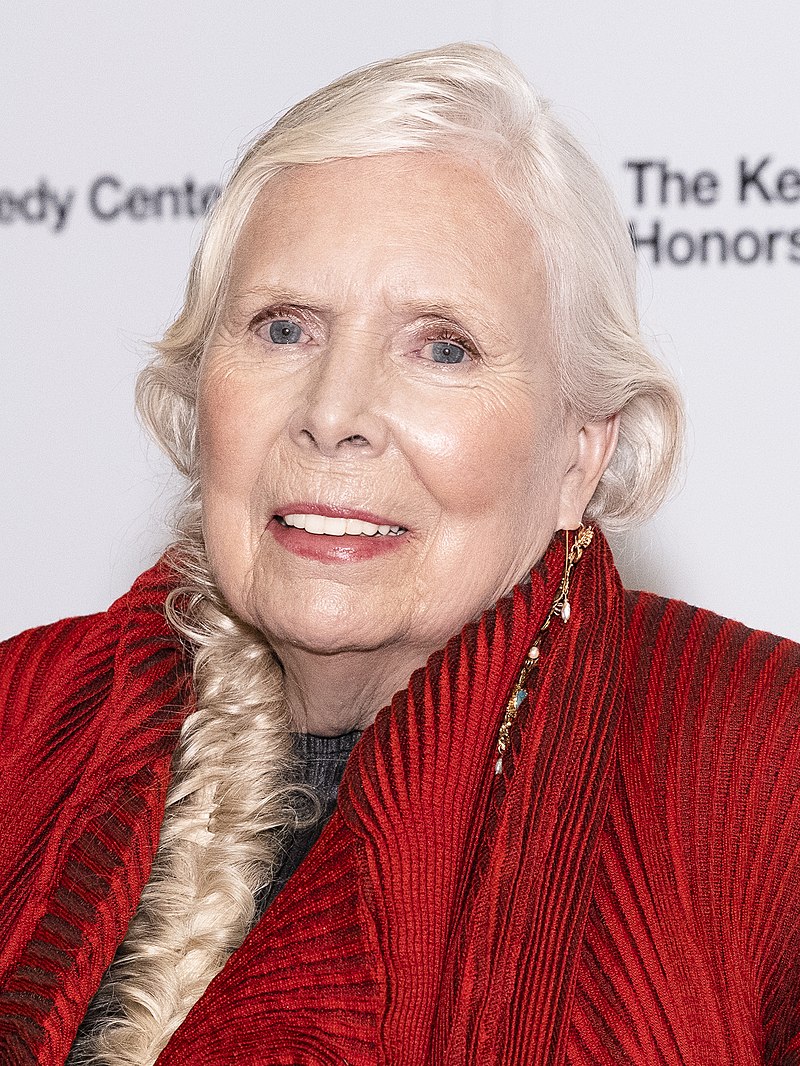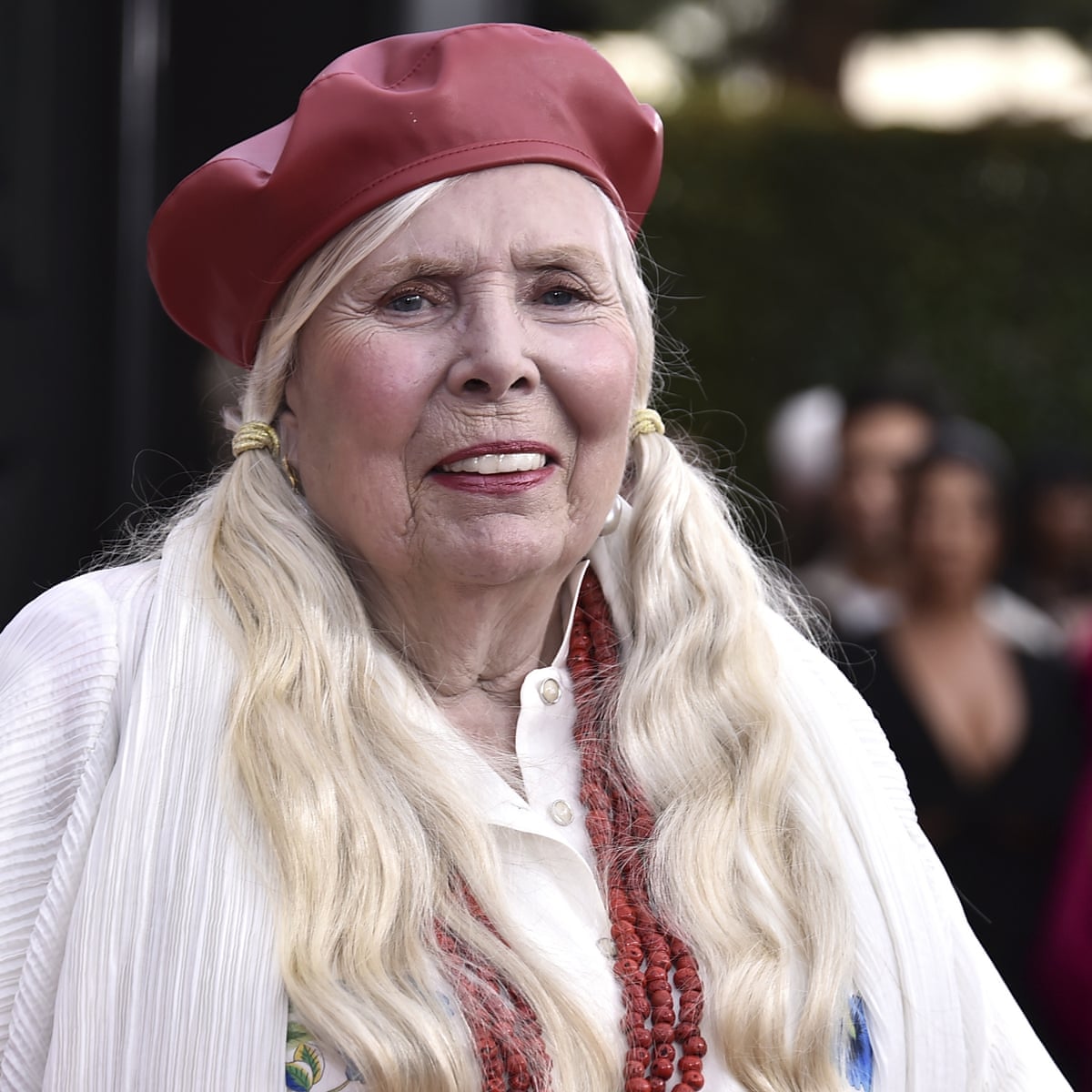Joni Mitchell
Joni Mitchell

Joni Mitchell, born Roberta Joan Anderson on November 7, 1943, is a Canadian-American singer-songwriter, multi-instrumentalist, and painter. Emerging from the folk music circuit of the 1960s, Mitchell quickly established herself as one of the most influential singer-songwriters of her time. Her music is characterized by starkly personal lyrics and unconventional compositions that evolved to incorporate elements of pop and jazz.
Throughout her career, Mitchell has been recognized with numerous accolades, including ten Grammy Awards. In 1997, she was inducted into the Rock and Roll Hall of Fame, cementing her status as a musical icon. Rolling Stone magazine hailed her as "one of the greatest songwriters ever," a testament to her profound impact on the music industry. AllMusic has similarly acclaimed her, stating that "Joni Mitchell may stand as the most important and influential female recording artist of the late 20th century."
Mitchell's contributions to music extend beyond her own recordings. Her songs have been covered by countless artists, and her influence continues to resonate across generations of musicians and songwriters. As both a musician and a visual artist, Joni Mitchell's creative legacy remains a cornerstone of contemporary music and culture.
Joni Mitchell's musical journey began in small nightclubs in Saskatoon and across western Canada, where she honed her craft as a singer-songwriter. She later ventured to the nightclubs of Toronto before eventually making her way to the United States, where she began touring in 1965. During this time, some of her original compositions, including "Urge for Going," "Chelsea Morning," "Both Sides, Now," and "The Circle Game," were recorded by other folk singers, which helped her secure a record deal with Reprise Records.

Settling in Southern California, Mitchell became a defining voice of her era and generation with iconic songs like "Big Yellow Taxi" and "Woodstock." However, it was her 1971 album "Blue" that solidified her place in music history. Widely regarded as one of the greatest albums of all time, "Blue" has received critical acclaim for its introspective songwriting and emotional depth. Rolling Stone magazine ranked it the 30th best album ever made in their 2003 list of the "500 Greatest Albums of All Time," a ranking that rose to number 3 in the 2020 edition.
In 2000, The New York Times selected "Blue" as one of the 25 albums that represented "turning points and pinnacles in 20th-century popular music." Additionally, NPR ranked "Blue" number 1 on their 2017 list of Greatest Albums Made By Women, highlighting its enduring impact and significance in the music industry.
Joni Mitchell's musical evolution took a notable turn with the release of "Court and Spark" in 1974. This album marked a departure from her folk roots towards a more jazz-influenced sound. Songs like "Help Me" and "Free Man in Paris" became radio hits, contributing to the album's commercial success, making it her best-selling record to date.
During this period, Mitchell's vocal range underwent a transformation, shifting from a mezzo-soprano to a wide-ranging contralto, adding depth and richness to her sound. Her songwriting also evolved, with compositions becoming more harmonically and rhythmically complex. Mitchell's incorporation of jazz elements into her music became more pronounced, blending seamlessly with rock and roll, R&B, classical, and non-Western influences.
In the mid-1970s, Mitchell collaborated with renowned jazz musicians such as Jaco Pastorius, Tom Scott, Wayne Shorter, Herbie Hancock, and Pat Metheny. She also worked with Charles Mingus on his final recordings, showcasing her versatility and willingness to explore diverse musical territories.
As her career progressed, Mitchell continued to experiment with pop and electronic music while also using her platform for political activism. In recognition of her groundbreaking contributions to music, she was honored with a Lifetime Achievement Award at the 44th Annual Grammy Awards in 2002, cementing her status as one of the most influential artists of her generation.
Joni Mitchell's influence extends beyond her music. Not only did she create and co-produce the majority of her albums, but she also took an active role in designing her album covers, reflecting her artistic vision and identity. Despite her success in the music industry, Mitchell remained critical of its workings, ultimately deciding to step away from touring after releasing her 19th and final album of original songs in 2007.
Over the following decades, Mitchell maintained a relatively low profile, occasionally granting interviews and appearing at events to advocate for various causes. However, a health setback in 2015, resulting from a brain aneurysm, required a long period of recovery and therapy. Despite this challenge, Mitchell's legacy continued to be celebrated through retrospective compilations and archival projects, such as the Joni Mitchell Archives, which aimed to unearth unreleased material from her extensive career.
In a remarkable return to the spotlight, Mitchell made a series of public appearances in 2021, accepting prestigious awards, including the Kennedy Center Honor. Her resurgence culminated in a highly anticipated live performance at the June 2022 Newport Folk Festival, marking her first live appearance in nine years. Subsequently, Mitchell headlined a show in June 2023 at the Gorge Amphitheatre in Washington State, reaffirming her enduring impact and enduring relevance in the music industry.
References
- "Joni Mitchell Biography". AllMusic. Archived from the original on April 24, 2011.
- a b Wild, David (October 31, 2002). "Joni Mitchell" (reprint). Rolling Stone. Archived from the original on May 31, 2020. Retrieved March 9, 2007.
- ^ "The Independent". UK. August 10, 2007. Archived from the original on May 31, 2020. Retrieved February 11, 2017.
- ^ "The Rolling Stone 500 Greatest Albums of All Time (Blue is listed at No. 30)". Rolling Stone. Archived from the original on June 23, 2008. Retrieved February 21, 2011.
- ^ "The 500 Greatest Albums of All Time: 50–1". Rolling Stone. September 22, 2020. Archived from the original on September 24, 2020. Retrieved October 31, 2020.
- ^ Pareles, Jon; Strauss, Neil; Ratliff, Ben & Powers, Ann (January 3, 2000). "Critics' Choices; Albums as Mileposts in a Musical Century". The New York Times. Archived from the original on May 31, 2020. Retrieved December 17, 2009.
- ^ Tsioulcas, Anastasia (July 24, 2017). "The 150 Greatest Albums Made By Women". National Public Radio. Retrieved September 4, 2017.













































